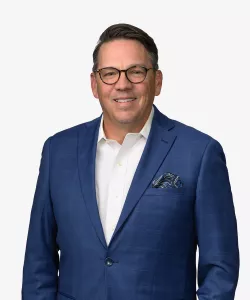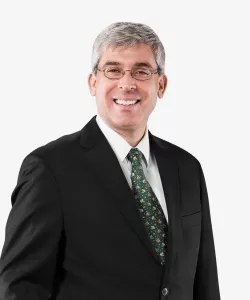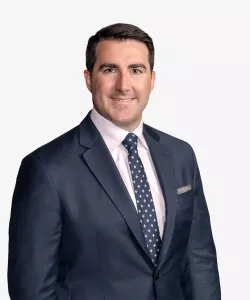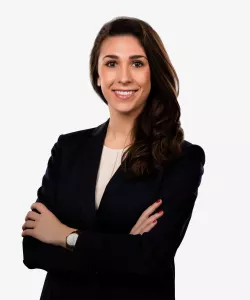SEC Adopts Aggressive Approach to COVID-19 Fraud
Headlines that Matter for Companies and Executives in Regulated Industries
SEC Developments
SEC Adopts Aggressive Approach to COVID-19 Fraud
The US Securities and Exchange Commission has already initiated multiple investigations into companies seeking to illegally profit from the global coronavirus pandemic and has aggressively used its civil enforcement authority to suspend trading in securities of companies making dubious disclosures about vaccines, testing, and protective gear.
By April 22, 2020, the SEC had suspended 23 companies from trading. The SEC has the authority to suspend trading for up to ten days if it determines that a suspension is necessary to protect investors and is in the public interest. A trading suspension is often imposed during a rapidly-evolving investigation.
One company that was suspended from trading last month is already facing charges, underscoring the SEC’s aggressive posture. On April 28, 2020, the SEC announced charges against Praxsyn Corp. and its CEO for allegedly making false and misleading press statements claiming Praxsyn was able to obtain large supplies of protective masks, after having temporarily suspended trading of Praxsyn securities on March 26, 2020. According to the SEC, Praxsyn issued press releases on February 27 and March 4, 2020 indicating, among other alleged falsehoods, that it had created a pipeline of N95 masks and had accepted orders of at least 100,000 masks. The company, however, never had any masks in its possession, orders for masks, or contracts with manufacturers or suppliers to obtain masks.
The complaint charges the company and its CEO with violations of the antifraud provisions of the federal securities laws and seeks civil penalties and injunctive relief. The SEC is also seeking to bar the CEO from serving as an officer or director of any public company.
Counsel for Praxsyn and its CEO accused the SEC of rushing to judgment and creating a false narrative that the company was exploiting the virus to boost its stock price. The agency’s growing list of trading suspensions in connection with COVID-19, however, suggest it is not going to slow down anytime soon.
Additional information about the recent trading suspensions issued in connection with COVID-19 can be found here. More details about the Praxsyn charges can be found here.
SEC Issues Investor Alerts Highlighting the Role of Whistleblowers and Tips In Coronavirus Investment Scams
Whistleblowers are expected to continue to play an important role in the SEC’s enforcement efforts during the global pandemic. In the past month, the SEC has issued multiple investor alerts concerning coronavirus-related investment scams targeting Main Street investors. The alerts highlight the role of reports in combatting fraud during the pandemic. In its new COVID-19 Quick Reference Guide for Investors and Market Participants and across multiple alerts, the agency encouraged anyone who becomes aware of possible securities fraud to report the activity using the SEC’s online tip, complaint, and referral system.
Although the SEC has moved to teleworking, an agency spokesperson told MLex Market Insight that the SEC is still fully operational, taking in whistleblower tips, reviewing award claims, and monitoring the public hotline.
As of April 28, 2020, the SEC has awarded over $448 million to 81 individuals since issuing its first award in 2012. Whistleblowers are eligible for an award if they voluntarily provide the SEC with original, timely, and credible information that leads to a successful enforcement action. Where monetary sanctions exceed $1 million, awards can range from 10 percent to 30 percent of the money collected.
The SEC maintains an active database of its alerts.
Additional information about the most recent SEC Whistleblower Program statistics can be found here.
Litigation Developments
Clinical Laboratory to Pay Over $40 Million for Alleged False Claims Act Violations
On April 27, 2020, Genova Diagnostics Inc., a North Carolina-based clinical laboratory services company, resolved allegations that it improperly submitted claims to Medicare, TRICARE, and the federal health program for unnecessary laboratory tests. The company also settled claims that it employed improper billing techniques and paid vendors in violation of the physician self-referral prohibition.
Genova agreed to pay approximately $17 million through the surrender of funds held by Medicare and TRICARE. Under the settlement terms, the lab will also pay up to an additional $26 million, depending on specified financial contingencies. The settlement resolves allegations only, and no determination of liability has been made.
Significantly, Genova also entered into a five-year Corporate Integrity Agreement with the Department of Health and Human Services Office of Inspector General. Under the agreement, the lab must engage an independent review organization and establish and maintain a compliance program.
The settlement resolves allegations that were brought under the whistleblower provisions of the False Claims Act, which allows private citizens to bring lawsuits on behalf of the United States for fraud. The whistleblower will receive approximately $6 million as part of the settlement.
The Department of Justice’s press release includes additional information about the allegations and settlement terms.
Surgeon Agrees to Pay $1.75 Million for Role in Consulting Fee Scam
This week, a Virginia-based surgeon settled claims related to his role in a fraudulent scheme in which SpineFrontier Inc., a medical device manufacturer, paid kickbacks in the form of fake consulting fees to induce surgeons to use its products in spinal surgeries. The surgeon is the sixth medical provider to settle charges related to the scheme.
In 2013, the surgeon entered into a consulting agreement with Impartial Medical Experts, LLC, a sham third-party entity that was wholly owned and operated by SpineFrontier’s founder and CEO. Pursuant to the agreement, the surgeon would be paid a rate of $500 per hour for providing feedback on the design and usability of SpineFrontier medical devices.
According to the government, the surgeon received over $1.25 million in kickbacks in the form of bogus consulting fees submitted through IME. The surgeon admitted that he did not track the time he spent consulting and instead reported time estimates based on the number of SpineFrontier products he used in a month. The surgeon agreed to pay more than $1.75 million to resolve allegations that he violated the Anti-Kickback Statute.
SpineFrontier allegedly paid more than $8 million to 35 surgeons as part of the scheme. The Government alleges that the surgeries generated over $100 million in sales for the company.
The Department of Justice’s press release includes additional details.
Contacts
- Related Industries
- Related Practices






